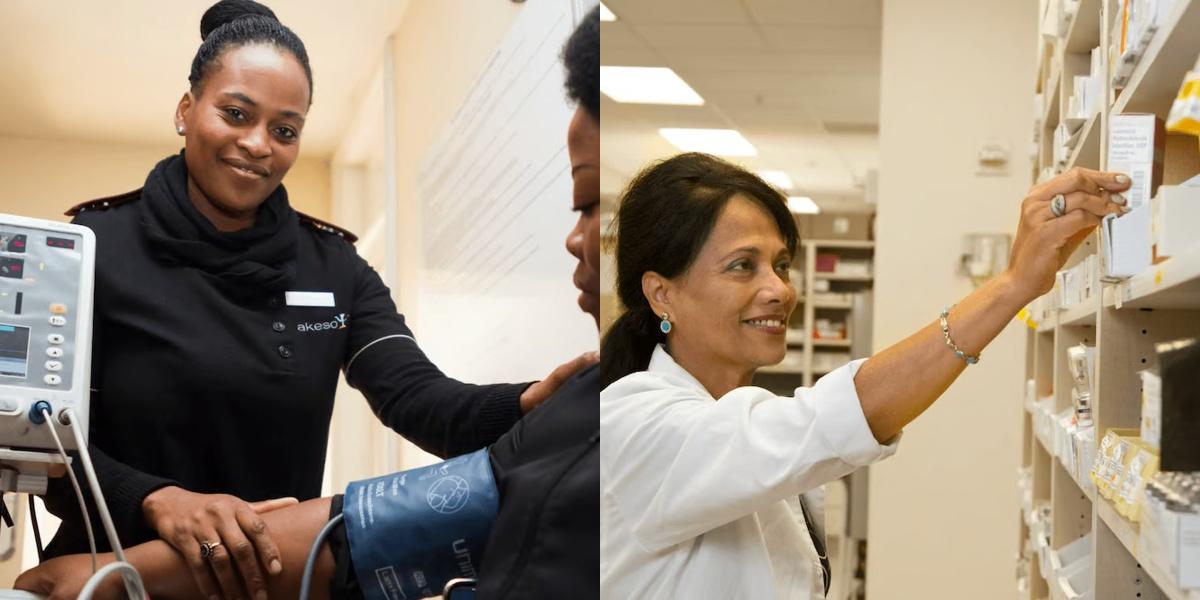Patient Care Technician vs Pharmacy Technician

Key Points:
- Patient Care Technicians assist nurses; Pharmacy Technicians help pharmacists with medication preparation and dispensing.
- Patient Care Technicians typically earn slightly higher wages than Pharmacy Technicians.
- Both fields have good job prospects, but Pharmacy Technicians may have more job openings.
- Both roles require in-person training, but Pharmacy Technicians may have more online learning options.
- Training for Patient Care Technicians is generally shorter and less expensive than for Pharmacy Technicians.
Healthcare is a dynamic and rapidly growing industry, and it requires skilled professionals to deliver quality care to patients. Patient care technicians and pharmacy technicians are two roles that play crucial roles in the healthcare system. While both positions involve assisting healthcare professionals, they have different responsibilities and skill sets. Understanding the key differences between these roles can help individuals make informed decisions about their career paths.
Patient Care Technician vs Pharmacy Technician: Career Outlook and Salary
Both patient care technicians and pharmacy technicians have promising career outlooks, with opportunities for growth and advancement.
Patient Care Technician:
- Career Outlook: According to the Bureau of Labor Statistics (BLS), employment of patient care technicians is projected to grow 8% from 2019 to 2029, much faster than the average for all occupations. This growth is attributed to the increasing demand for healthcare services, particularly from the aging population.
- Salary: The median annual wage for patient care technicians was $32,050 in May 2020, according to the BLS. However, it's important to note that salaries can vary depending on factors such as location, experience, and employer.
Pharmacy Technician:
- Career Outlook: The BLS projects that employment of pharmacy technicians will grow 4% from 2019 to 2029, which is about average for all occupations. The demand for prescription medications is expected to increase as the population ages, contributing to the need for pharmacy technicians.
- Salary: The median annual wage for pharmacy technicians was $34,020 in May 2020, according to the BLS. As with patient care technicians, salaries can vary based on factors such as location, experience, and employer.
Final Thoughts
Choosing a career in healthcare requires careful consideration of your interests, skills, and long-term goals. Patient care technicians and pharmacy technicians both play vital roles in the healthcare system, but they have distinct responsibilities and skill sets. By understanding the differences between these roles, you can make an informed decision about which path is the best fit for you. Whether you choose to become a patient care technician or a pharmacy technician, both career paths offer opportunities for growth, job security, and the chance to make a positive impact on the lives of others.
Dreambound's educational programs cater to a wide range of locations, ensuring accessibility for individuals eager to explore new horizons. Delve into a more comprehensive understanding of the possibilities within these two vocations by visiting:

Pia Yapjoco is part of the school growth and sales team at Dreambound. She helps facilitate school partnerships that expand educational opportunities for aspiring students in allied health and other trades. Beyond work, she curates her pup's Instagram, hunts for hidden coffee gems, and escapes into cozy gaming.




